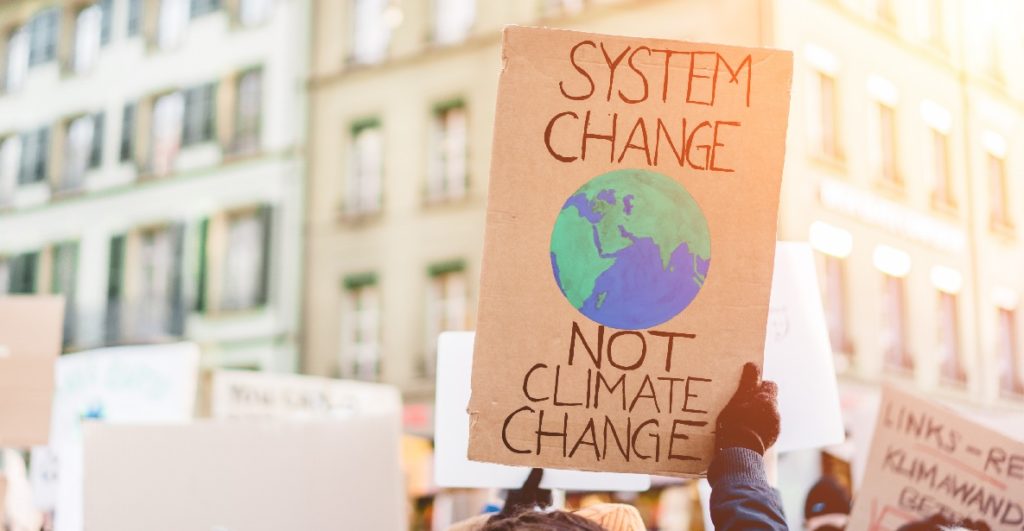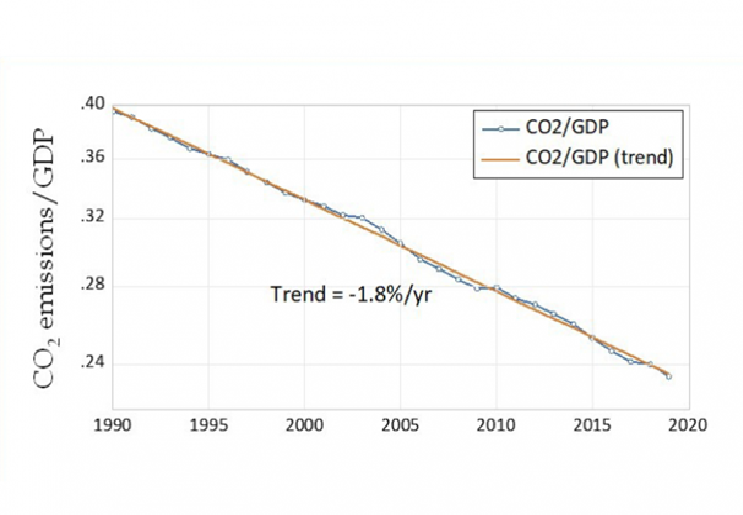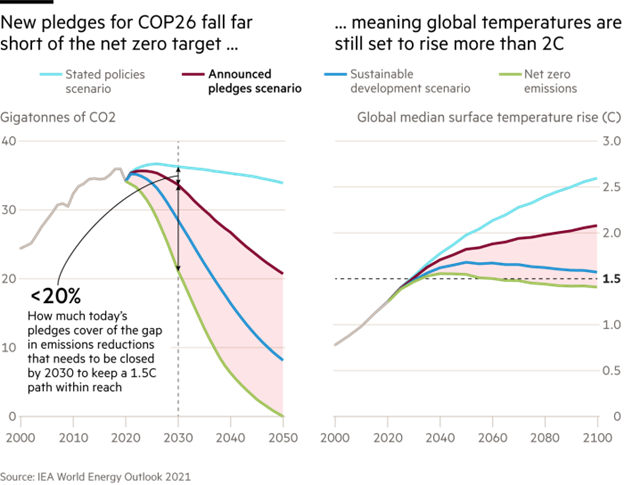More often than not, economic crises are the product of excesses: prolonged periods of low interest rates despite the overheating economy, exchange rates that do not mirror the economic competitiveness of the issuing country, excessive indebtedness resulting in default, budget deficits that run too high or excessive increases in public sector wages. Under such circumstances, it is not a matter of “if”, but of “when” and “how” economic rebalancing will be achieved. Basically, there are only two options. First, a planned adjustment, where the necessary changes happen gradually, through monetary and fiscal measures likely to induce a smooth “landing” of the economy into a new balanced situation.
The second one is a spontaneous adjustment, through market forces, generating an economic shock that is sufficiently powerful to put a sudden end to imbalances, at the expense of increased unemployment, currency depreciation, inflation, thus virtually impoverishing the population. This second option is usually a consequence of passiveness, ignorance or lack of courage to take the necessary corrective measures in due time.
 The climate crisis is no exception. The Earth as well can be brought back into balance through either a planned or a spontaneous approach. But there is a vital difference between an economic crisis and a climate one. Economic crises and recoveries take years in the making. On the other hand, it took decades of unsustainable industrial policies to trigger the current climate trends and, once the crisis breaks, it will have a devastating effect on human civilization.
The climate crisis is no exception. The Earth as well can be brought back into balance through either a planned or a spontaneous approach. But there is a vital difference between an economic crisis and a climate one. Economic crises and recoveries take years in the making. On the other hand, it took decades of unsustainable industrial policies to trigger the current climate trends and, once the crisis breaks, it will have a devastating effect on human civilization.
Ultimately, in a spontaneous adjustment process, disasters will decimate the population, ruining economies and taking us back in history to the point where the carbon emissions we would produce would be reduced to a new level, in balance with the planetary ecosystem. But such a process would hurt not only the human civilization, but the fauna and flora of the planet, subjecting them to irreversible changes through desertification and loss of species. As for how long it would take to potentially recover from such a crisis, we might be talking hundreds or thousands of years. That is, if the planet ever recovers.
This means that, unlike the painful, yet time-bound costs associated with the passiveness in the event of an economic crisis, the costs associated with the passiveness in the event of a climate crisis will have devastating long-term effects worldwide.
 And the first uncomfortable truth that must be said is that the constant hustle and “concern” of political leaders these past decades have led to absolutely no visible consequence on the acceleration of the decarbonisation of economies. Take a look at the chart below to see the quantity of CO2 emissions worldwide per GDP unit in the past 30 years, as presented by Nobel laureate William Nordhaus in Foreign Affairs. The conclusion is painful and it actually brings us to the first major issue of our civilization: the lack of efficient leadership in a project of such magnitude. Despite the tens of conferences and protocols signed in 1992, 1997, 2009 or 2015, there has been no acceleration whatsoever in the decarbonisation trend. It maintained a steady linear flow.
And the first uncomfortable truth that must be said is that the constant hustle and “concern” of political leaders these past decades have led to absolutely no visible consequence on the acceleration of the decarbonisation of economies. Take a look at the chart below to see the quantity of CO2 emissions worldwide per GDP unit in the past 30 years, as presented by Nobel laureate William Nordhaus in Foreign Affairs. The conclusion is painful and it actually brings us to the first major issue of our civilization: the lack of efficient leadership in a project of such magnitude. Despite the tens of conferences and protocols signed in 1992, 1997, 2009 or 2015, there has been no acceleration whatsoever in the decarbonisation trend. It maintained a steady linear flow.
And it is obvious where the leadership or initiative in this extremely intricate process must come from. We shouldn’t let ourselves be fooled. All these conferences boasted a quasi-global participation in a grand show, when the global warming problem could be solved by the agreement of just 20 countries. These 20 countries are the source of 80% of the carbon emissions in the atmosphere.
But for these countries to do what is needed, two rather tricky requirements must be met. Firstly, they should put an end to their geopolitical competition and stop this “free-riding” or hunting for “free lunches” in the hope that the “others” will do their job, too. They need to understand that a climate disaster will have only losers and no winner.
Secondly, they should stop unrealistically claiming that we can solve climate change issues strictly through technology. We do not have the time, money or necessary know-how to act fast enough through technology alone.
Technology will undoubtedly play a key role, but the truth the leaders of large polluters refuse to utter is that putting an end to global warming cannot be achieved fast enough without a significant adjustment – with an emphasis on “significant” – of our lifestyle. More bluntly said, without a certain rationing of our excessive consumption.
The production of CO2 is a direct consequence of the consumerist, energy-intensive behavior displayed mainly by the people living in developed countries. From this perspective, the actual parameter of our individual contribution is the footprint we generate through our consumption. Judging on this measure, the fact that China produces one third of the carbon emissions has a very simple explanation. It is the result of satisfying the needs for consumption of the developed countries. So it is probably not to China that we should start pointing fingers.
A survey conducted in 43 countries on 5 continents and published by the Norwegian University of Science and Technology indicates that consumers are responsible for 60% of the carbon emissions and 80% of water consumption worldwide. The largest carbon footprint belongs to the US consumer, with 18.8 tons of CO2-equivalent, while the Chinese consumer’s footprint is 10 times smaller. According to the survey, the footprint of the Romanian consumer stands at 4.6 tons, slightly below Hungary and half of Poland’s, where coal is still very popular. The global average is 3.4 tons.
The conclusion is that, before throwing accusing looks at governments and corporations or showing our resentment and booing in city squares, we should take a critical look at our own behavior. Willingly changing the behavior at a large scale is not easy to achieve, especially when we talk about ways of shrinking consumption. Psychologists warn us that measures aimed at changing the public’s opinion most often do not result in a change of behavior. Because there is habit that comes into play here.
For this reason, it takes a whole toolkit to create a new habit, a new behavior that brings about a decrease in carbon emissions. And the economic levers will play a key role in promoting the desired behaviors and penalizing the “habits” we must break.
Indeed, the energy price hike is terrible and frustrating and must come with protection for vulnerable categories. Meanwhile, however, it will lead to significant behavioral changes as regards the way we build homes and office buildings, thermally insulate the existing ones and heat them. These are particularly significant changes, given that residential heating is one of the most important sources of CO2 emissions.
At the same time, the shock of energy prices also testifies to the lack of leadership and planning in such a complicated adjustment process. Practically, they had decades to prepare for ending the use of coal-based energy, migrating to natural gas as intermediate solution and consequently finding the necessary sources of natural gas. Yet, here we are today, witnessing the chaotic transition to a less polluting energy that eventually makes us dependent on quasi-monopolist gas suppliers, with a rather unpredictable economic behavior.
Not only were leaders incapable of planning, but they even managed to succumb to obsessions that made them overlook their true priority. So they ended up fighting carbon emissions by, mind you, banning nuclear plants because … the tsunami in Japan proved how unsafe they were. And when rules are in the way, the laws of chemistry become meaningless and you want to change them as you go: natural gas is acceptable, green, while nuclear energy is not.
But, aside from the obvious inabilities to plan the acceleration of the transition from hydrocarbons to green energy, another uncomfortable truth is that, to reach the decarbonisation targets, the price spike should not stop here.
In the assessment published in Foreign Affairs, economist William Nordhaus claimed that meeting the emission targets is unconceivable without two extremely important measures. Firstly, the globalization of carbon credits, as they currently cover only one fifth of the emissions.
Secondly, the cost of emissions should go from the current record value of $50 per ton to $85 USD by 2050. As long as the penalty for CO2 emissions is not sufficiently high, groundbreaking energies will stand no chance of generating business plans that attract massive investments.
 The head of the International Energy Agency also warns that the extreme volatility of energy markets will remain a major risk unless investments in renewable energy triple over the next decade. Furthermore, assuming all governments meet their current commitments for net zero emissions, the world would reach, by 2030, only 20% of emissions cuts needed to reach the net zero target by 2050. The Financial Times chart above is more than enlightening.
The head of the International Energy Agency also warns that the extreme volatility of energy markets will remain a major risk unless investments in renewable energy triple over the next decade. Furthermore, assuming all governments meet their current commitments for net zero emissions, the world would reach, by 2030, only 20% of emissions cuts needed to reach the net zero target by 2050. The Financial Times chart above is more than enlightening.
Along with feeding the illusion that global warming can be stopped by insignificant adjustments to our lifestyle, there is another great illusion kept alive due to sheer egoism and ignoring the fact that, given the serious situation we are in, unlike in the times of great empires, everyone in the boat should row.
This focus exclusively on curbing emissions takes me to the next analogy. Imagine we set out to solve world hunger, which increased sevenfold in the past two decades, only by forcing people to eat less and less, instead of trying to boost agricultural production. This would have been a non-solution, obviously. And yet, this is what we try to replicate when it comes to CO2 emissions and related oxygen consumption.
Countries with the largest forest areas and major oxygen producers through CO2 absorption are absent from the financial equation of planet protection. The big concern is how to penalize them when they cut their forests. And still, the international community is yet to find a way to penalize large polluters failing to meet the emissions targets to which they committed.
As for the wooded countries of the planet, the goal should actually be rewarding them so that the economic value of uncut trees exceeds that of arable land or ore underneath it. And forests should become a source of wealth for such countries, where deforestation could not only be stopped, but even reversed. The terribly narrow focus on limiting carbon emissions seems to lose sight of the importance of natural ecosystems in the planetary balance, not to mention the moral responsibility we have towards preserving the planet’s species.
Could a zero-emission target for a country like Brazil or for the African countries with equatorial forests hold true? Is the zero emissions target only for rich countries or for all countries, including those with large forest areas and ecosystems? For if all countries must meet it, we end up in the absurd situation where we can say good-bye to the large forests of the planet and related fauna, given the low level of emissions of the countries hosting them.
This only goes to show the short-sightedness of such a goal and the lack of interest in finding an economic mechanism to remunerate countries that take on the role of the “lung” for the big world polluters, meaning those that have a standard to maintain way above the “net zero”. A strategy to tackle climate change by focusing exclusively on CO2 emissions and the natural absorption of CO2 is short-legged, short-sighted and immoral to the natural wealth of the planet. But this would again mean that the rich countries, the big consumer-polluters, accept being less rich, thus agreeing to a transfer of wealth to forest holders.
Given the challenges above, the outcome of the Glasgow conference is, unfortunately, far from what would be needed. And the bad news is that, as long as the global warming issue continues to be treated with egoism, cynicism and hypocrisy, the future doesn’t look good.



